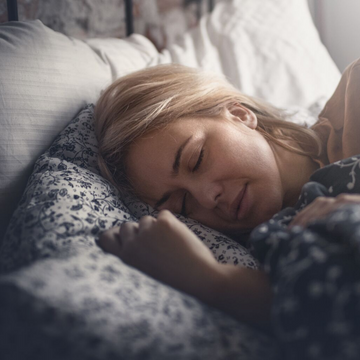Sleep is the most under-rated tool we have for our health and studies show that not only can it assist with brain function and overall alertness, but it may be important in preventing chronic health diseases such as obesity, diabetes, Alzheimer’s disease and even certain cancers. What’s even more exciting, sleep can help slow down the ageing process by delaying the shortening of our telomeres on our DNA which determine the speed at which we age.
So why don’t we prioritise sleep as much as exercise or good nutrition?
The three crucial things to consider when we are talking about a good nights sleep are; the quality of sleep (undisturbed throughout the night without loud noises or bright lights), the quantity of sleep (7-9 hours is ideal) and regularity/routine of sleep (going to bed and waking up at the same time each day is important). Our sleep rhythms vary throughout the night with 4 key sleep phases and each one is important for various brain processes. Our sleep cycles pre-midnight are different to those post-midnight with the amount of time spent in each of the sleep phases changing, for example, we get more “deep” sleep prior to midnight and more “REM” (Rapid Eye Movement) sleep in the early hours of the morning. This is why you can sometimes feel unrested if we get to bed too late, even if we have a sleep in, and it may also explain why we might have more vivid dreams if we are going to bed in the early hours of the morning when we have more REM sleep which is the phase dreaming occurs.
5 simple tips for good sleep:
1) Avoid using screens 2 hours before bed and if you must, turn on the night mode to change the light from bright blue (stimulates the brain to think its daylight) to yellow (associated with the evening). These can be found under settings – display and brightness – night mode – manual (iPhones).
2) Keep your bedroom cool for sleep – our bodies are very temperature sensitive when it comes to sleep and the onset of cold temperatures is associated with sleep whilst warmth stimulates our bodies to waken.
3) Try to go to bed at the same time each evening and wake at the same time each morning but your sleep and wake time will be dependant on whether you are a ‘Lark’ (morning person) or an ‘Owl’ (evening person). Therefore, follow your body’s natural sleep rhythms and either way, try to get a minimum of 7-9 hours sleep per night.
4) Avoid caffeine in the evening if you want a more restful nights sleep as even though some people can tolerate a coffee after dinner, the 6 hour half-life of caffeine will play havoc with sleep cycles and may reduce to overall amount of deep sleep.
5) Contrary to belief, alcohol does NOT improve sleep. It actually disrupts normal sleep cycles leading you to feel un-rested when you wake up the next day due to more fragmented sleep.









